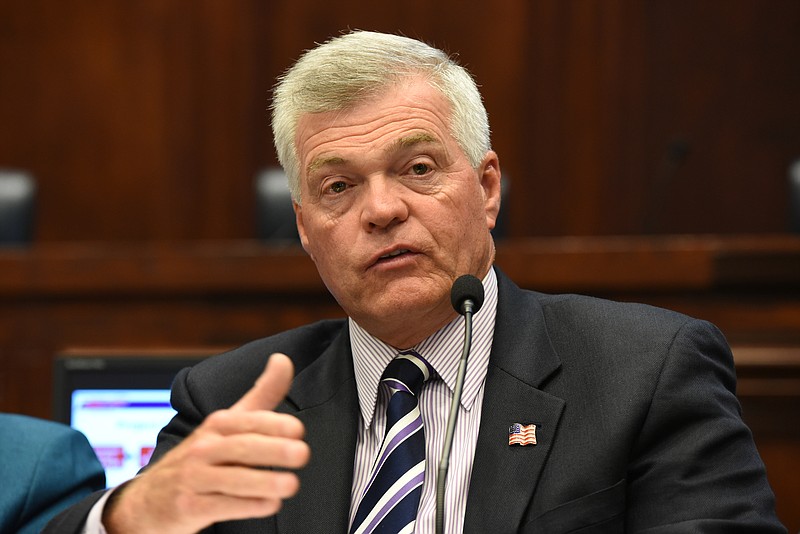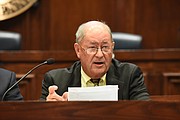Tennessee's gas tax hasn't gone up since 1989. The cost of building roads has, though. Considerably.
"Is there any phase of this that's cheaper than 1989? Designing a road today - is it cheaper? I can tell you it's not," state Sen. Jim Tracy, Senate Transportation and Safety Committee chairman, said Wednesday in Chattanooga.
"If you think you can buy right-of-way cheaper today than you could in 1989, I've got some oceanfront property right here in Chattanooga I can sell you. Or I'll run a 4.3 40."
Tracy, along with Susan Mattson, principal legislative research analyst for the state comptroller, and Bill Moore, chairman of the Tennessee Infrastructure Alliance, were in Chattanooga to talk about Tennessee's roads and transportation needs. The presentation was the eighth of nine meetings the trio is hosting around the state.
The audience was a mix of local residents and elected officials, including state Sens. Todd Gardenhire and Bo Watson, both Chattanooga Republicans.
Discussion ranged from why it takes several years to build a road and where Tennessee ranks nationally on road funding and some local projects the Tennessee Department of Transportation needs more funding to complete.
Road construction costs have shot up over the years, Tracy said, from about $35,000 for a mile of county road in 2005 to about $100,000 for that same road now.
Moore highlighted six local projects that remain unfunded, from rebuilding the I-24/I-75 interchange that sees 125,000 cars a day and will cost $70 million to a 3.2-mile stretch of State Road 60 north of Interstate 75 in Bradley County that will cost $13.8 million to widen.
"Of the 250 projects on TDOT's backlogged list today, about 80 percent of those projects have been through the right-of-way phase," Moore said.
This means they are through three phases of building, with only construction left. But construction takes up about 75 percent of a project's budget.
So, how to pay for it?
Mattson said many ways to raise road funds are available, such as raising motor vehicle registration fees and debt financing, but the one she talked about most is an increase in revenue from taxes.
The gas tax was raised in 1989 to 21.4 cents per gallon. That figure is 12th-lowest in the country today. The average Tennessee driver spends about $160 a year in state tax on gas.
A one-cent increase would cost the average driver about $7.50 extra a year and produce an extra $30.9 million to the state highway fund, increasing the budget by 5 percent, Mattson said. A one-cent increase in the diesel tax would add an extra $9 million to the budget.
Or, she said, Tennessee could levy the 7 percent state sales tax to gas, which she said would double the budget for the state highway fund.
Gov. Bill Haslam has been on a campaign to raise money for transportation revenue increases. When asked about raising the gas tax earlier this month, Haslam said he didn't know of any other way to raise money for roads. The issue has been a point of contention, though, with several politicians saying they wouldn't vote for a higher gas tax.
Georgia recently raised its gas tax by between 6 and 7 percent to help generate an extra billion dollars for its own backup of projects dealing with road maintenance.
"Economic growth right now is great in Tennessee. We're business friendly," Tracy said. "If we want to continue that growth in Tennessee, infrastructure is so important. You got to have roads to get the product in and out."
Contact staff writer Evan Hoopfer at ehoopfer@timesfreepress.com or @EvanHoopfer on Twitter or 423-757-6731.

